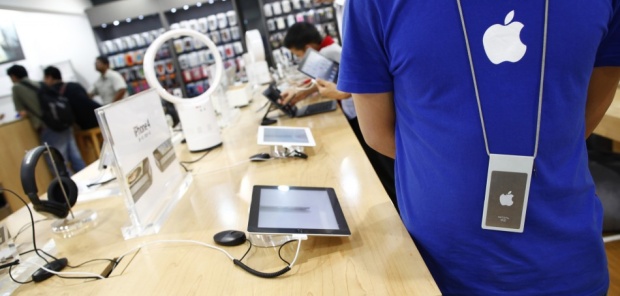New Wikileaks cables detail Apple's struggle with Chinese counterfeiting

Apple was 'too slow' to act against rife counterfeiting in China and the Asia market, according to the latest release of Wikileaks cables, seen by CNN.
In March 2008, Apple organised a team to counter the sudden boom of counterfeit Apple goods, from iPhones to iPods, according to a cable from the U.S. Embassy in Beijing, dated September 2008.
But three years on, and with the recent reporting of fake Apple stores in major Chinese cities, progress has been slow, and Beijing does not see the piracy issue as a "high priority".

Apple's recently formed "global security team" were recruited, reportedly from Pfizer, after the pharmaceutical giant had successfully cracked open an illegal Viagra ring in Asia.
The team works in China and further afield across Asia to crack down on counterfeit goods, produced by back-street pirates and sold in either fake stores or street vendors.
But the Chinese government is not helping as much as it should, the cable adds.
One highlight shows that Beijing "refused to investigate" a manufacturing plant of fake Apple products because it would "threaten local jobs", adding that any raids on a imitation Apple store could drive away shoppers from a local mall.
A former FBI special agent, John Theriault, former Pfizer security lead, now leads the global security unit at Apple. Don Shruhan, who worked under Theriault, now leads the Apple security team in Hong Kong.
But the team was keen to keep a low profile. After Theriault briefed Steve Jobs in 2008, it was agreed that this would not be widely publicised.
Shruhan told the U.S. Embassy in Beijing that he was "afraid" of the scale of the counterfeiting operation of Apple's leading products, and the inability of Apple's lawyers to operate with the Chinese authorities in matters relating to piracy, the cable says.
Apple only has four stores in China -- still an emerging market -- with a new Hong Kong store on the way.
But China is a tough market to crack for Apple, which still has to contend with a wide range of knock-off goods. It is expected that the upcoming 'world' iPhone for developing markets could have a significant, positive impact on the Chinese market.
Since the discovery of many knock-off Apple stores earlier this year, many stores in China were shut down shortly after they were discovered.
Related content: